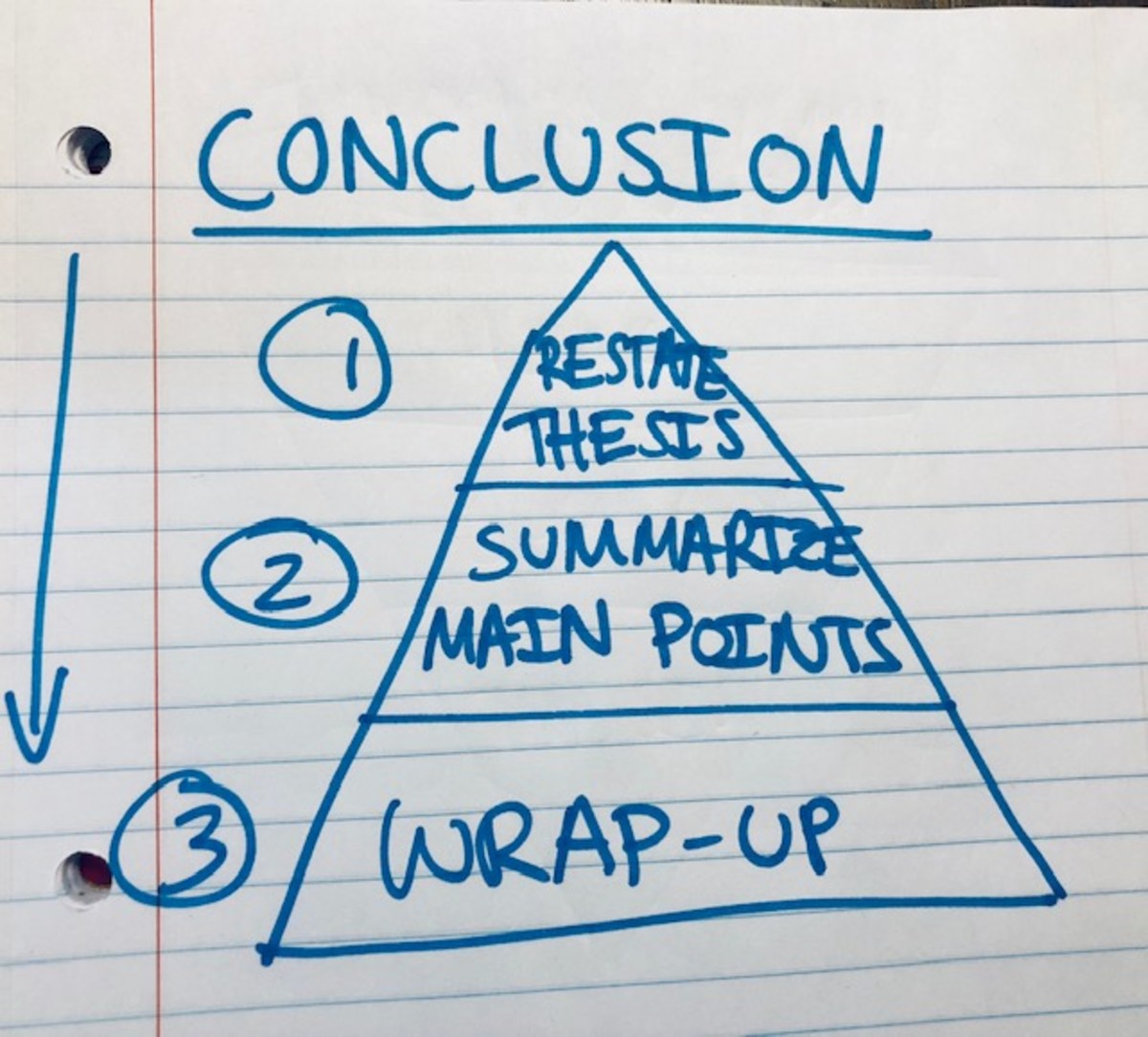How to Write a Philosophy Essay

What this hub contains
There are no hard and fast rules to write a philosophy essay, but there are certainly some dos and don’ts that are very important to keep in mind. This entry is suitable to both the beginner and intermediate philosophy student. It will provide you with three things:
-
A brief introduction on what your tutor/marker might expect from a philosophy essay
- A list of dos and don’ts with philosophy essay writing
- Some suggestions on different types of essays
Some helpful resources
What does your marker/tutor expect?
There are no easy answers in philosophy. Many of the questions that it poses have been posed for thousands of years, so no tutor/marker is expecting you to come up with ‘the solution’. But they do expect you to engage adequately with the literature. What this means will largely be at the discretion of your marker/tutor. So if you are really unsure, it is always good to speak to them. But there are some guidelines that you can adhere to which may help you along your way.
Dos and Don’ts of Philosophy Essay Writing
Do…
- Write in a philosophical manner, or perhaps the ‘philosophical mood’ (to see what sort of questions you should ask yourself, see my hub on 'How to think Philosophically')
- Take the time to assess the question (this is really important—if anyone needs any help on this, please ask me in the comments). For example, if the question is “does Descartes think machines can think? Discuss in relation to the ‘Turing Test’”, you need to at least consider what Descartes says about machines and thinking, what the Turing Test is, and how the two relate.
- Relating to the last point, make sure you answer the question that is asked of you! (This is not as silly as it sounds. Often, students don’t actually answer the question that is asked of them.)
- Read the relevant readings. The relevant readings for your essays should be within the course syllabus, as well as on the suggested reading list. It is always good to do as much reading as possible. Try to read the required readings and at least two readings from the suggested reading list. If there isn’t one, ask your tutor/marker for some suggestions.
- When you write your essay make it as clear as possible. As a basic minimum it should contain an introduction, main body and conclusion. (Although, there may be some valid variations on this general schema, as I show below.)
- Plan out your essay before you begin.
- Ensure you take the time to explain each position you are discussing well.
- Read and re-read your essay for any ‘silly’ errors that you might not have picked up the first time.
- Hand the essay in on time or , if this is not possible for any reason, ask your tutor/marker for an extension.
Don’t…
- Expect the answer to come to you straight away. Often, a lot of hard work is needed.
- Think that you have to do something completely original. A good survey of the literature and some of your own thoughts on the matter is often enough for a good grade.
- Ignore the tutor/marker’s suggestions for readings etc. including their suggestion to come and see them with any questions.
- Misspell philosopher’s names or use sloppy grammar.
- Leave out details of a particular argument so it is easier for you to knock over. This is not good philosophy
- Leave your essay to the last minute.
- Put too much emphasis on reciting particular arguments or inserting your own thoughts. An equilibrium between these two is needed. On the one hand, your tutor/marker needs to know that you can explain the arguments, and, on the other, your tutor/marker needs to know that you understand the arguments. Giving your own examples/thoughts can show that you understand the arguments.
I am sure I could add more. These are good starting points, however.
Types of philosophy essays
Here I give a list of different types of philosophy essays that you might write. Remember, be creative!
- Argumentative piece: You might want to argue for a certain position. These sorts of essays require an introduction, where you state the problem, what you will be arguing and how you will be doing it. You then need to write your main body text. This is the bulk of your work. To do this well you need to first explain the positions you will be arguing against and then launch your argument. Finally, write a conclusion that basically gives the result of your findings and a short summary of how you got there. For more details, see here.
- Discussion piece: You might not have any worked out position—but you need to write an essay! Perhaps, then, you are best to write a discussion piece. Similarly to the argumentative piece, this will require an introduction, main body and conclusion. The difference will be that you are not arguing for any particular position. Some suggestions on what you might do are these (which will be very relevant to the question you have): discuss the differences between two or more authors, show where it is that two or more authors agree/disagree with each other, show how the arguments you are discussing shed light on some further area of enquiry. As above, your introduction will explain what you are going to do, you will do it in your main text body, and your conclusion will give a result of your findings and a short summary of how you got there. For more details, see here.
- Dialogue: A dialogue is a discussion between two or more people. If you read much Plato you will most probably have come across this sort of essay. The general idea in writing a dialogue is that you will set up your characters as holding particular philosophical positions, and provide an argument between the two characters. The outcome of the dialogue is usually that either both characters come to some type of consensus, or they agree to disagree. You make the choice!
- Metaphorical: Now, this one is a bit tricky. I have only seen it pulled off once before by a student. The idea, here, is to create a story that has philosophical themes running through it, but is in a fictional story format. Nietzsche did this with his book Thus Spoke Zarathustra and Sartre did it with his book Nausea. The problem with this type of essay is that it is really hard to pull off. You have to write a colourful story while attempting to answer the essay question. Not an easy one, but if you can do it, it is very effective.
These are very brief explanations of four basic essay types. I will soon post some more detailed comments on each in another hub.










